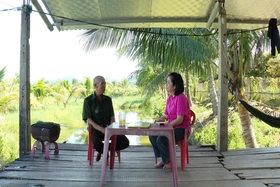aOG7tWxqw7nEgsO04buG4buGZcSpw4o44bu34buCxILFqcSpaWjhu4bhu4Lhu4DhurbhurDhu7NpNeG7hMO04bqw4buzajjhu4Dhu7dqw73hurbDueG7hOG7hsWp4buGauG6tuG6sGrhu6XFqUzFqcSC4bq2w4rhu7fhurDhu7Nqxanhu4bhu4bFqeG6sOG7guG7t8O0xIJq4bu34bqww73hu4DDtOG7huG7guG7gOG7hMO54buC4buE4buAxalq4bu34bqwasWp4buC4bu14bqw4bu3w7lq4bqu4bu34bqw4bq24buA4bu34buCT2rDtOG7gMWpw7Thu4ZoL+G7huG7guG7gOG6tuG6sOG7s2loL+G7tWxpaMOKasO5xILDtOG7huG7hmXEqcOK4bu0xanDtOG7pcSpaTbFqcO5xanhurDhu4LEgk/hu4dq4buE4buG4bu34bqw4buzasO94buE4bqw4bul4buGasO94buA4bq24bquauG7guG7tcWpajrDtOG7guG7t+G6tuG6sMO0xIJqOMO04buA4buzxanhu4JqNOG7gOG6tuG7s+G7gMO04bquasO94bq24buAauG7huG6tsO54bu34bq2LcWpw7nhurbhurDhurbhuq7hu7fDuWrhu6XFqUzFqcSC4bq2w4rhuq7FqeG6sOG7gmrhu7fhurBqxanhu4Lhu7XhurDhu7fDuWrhuq7hu7fhurDhurbhu4Dhu7fhu4JPasO04bqw4bulauG6ruG6tuG7hOG6sOG7gsO04bu34bqw4bq24buE4buGasO04buAxanDtOG7huG7h2pMw7Thu4Dhu7fhurbhu4Thu4Zq4bulxanDisO04buA4buC4bquxanhurDhu4Lhu4bhu4dq4buGxanDueG7guG6tuG7gOG7huG7h2rDtOG6sOG7pWrEguG6tsO5w7TEguG7t+G7guG7t8Wp4buGauG7t+G6sGo14buEw7ThurDhu7NqOOG7gOG7t2o04buA4bq2TOG7t+G6sMO5xalq4bu1w7RMxalq4bu34bqwTMWp4buG4buCxanhu6Vq4bu34bqwauG7pcWpTMWpxILhurbDiuG7t+G6sOG7s2rFqeG7huG7hsWp4bqw4buC4bu3w7TEgmrhu7fhurDDveG7gMO04buG4buC4buA4buEw7nhu4Lhu4Thu4DFqeG7g2o44bu14bu34buGauG7t+G6sEzFqeG7huG7guG6rsWp4bqw4buCasO04bu34bqu4buGauG7guG6tmrhu4bhu4TDisOK4bq24buA4buCasO64bq24buC4bu1asOK4buA4bq24bul4buEw7nhu4Lhu7fhurbhurBqw7ThurDhu6Vq4bulw7Thu7fEgk9qxILhu7fDvcWpauG7t+G6sGrFqeG7guG7teG6sOG7t8O5auG6ruG7t+G6sOG6tuG7gOG7t+G7gk9q4buAxanhu7Phu7fhurbhurDhu4bhu4dq4buC4bu1xanhu4DFqcO6T2rhu7fhuq7DiuG7gOG6tkzhu7fhurDhu7Nq4buC4bu1xalq4bquw7Thu4LFqeG7gOG7t8O0xIJqw7ThurDhu6Vq4buGw4rhu7fhu4Dhu7fhu4Lhu4TDtMSCak3FqcSCxIItw7rFqeG7t+G6sOG7s2rhurbDvWrhu4Lhu7XFqWrEguG6tsO5w7TEgmrDiuG6tsOK4buExILDtOG7guG7t+G6tuG6sOG7g2gvw4ppaMOKasO5xILDtOG7huG7hmXEqcOKw5rhurbhu6VPxKlpaOG7t+G6ruG7s2rDucSCw7Thu4bhu4ZlxKnhu7fDmcWp4bqw4buCxanhu4DEqWrhu4bhu4JPxILFqWXEqU3hu7fhu6Xhu4Lhu7Xhur9qbGzhu49sw4pO4buBauG7tcWp4bu34buz4bu14buC4bq/auG7jcOybsOKTuG7gcSpauG7huG7gMO5ZcSpLy/DueG7g8O6w7Thurbhur7hu4TDtOG6sOG7s+G7guG7gOG7t+G7g0zhurAv4bulxanhu4bDg+G7guG6tsOKL+G6sMWpTeG7hi9tb27hu48vbG7Ds+G7pWxs4buPbG1r4buP4buCbG9sb8SCbi1sbG/hu6VsbWtubGvhu43hu4JvbWtvxIJvLeG7guG7g03FqcO6w4rEqWrDtMSC4buCZcSpNeG7hMO04bqw4buzajjhu4Dhu7dqw73hurbDueG7hOG7hsWp4buGauG6tuG6sGrhu6XFqUzFqcSC4bq2w4rhu7fhurDhu7Nqxanhu4bhu4bFqeG6sOG7guG7t8O0xIJq4bu34bqww73hu4DDtOG7huG7guG7gOG7hMO54buC4buE4buAxalq4bu34bqwasWp4buC4bu14bqw4bu3w7lq4bqu4bu34bqw4bq24buA4bu34buCT2rDtOG7gMWpw7Thu4bEqWpN4bu34bul4buC4bu1ZcSpbGzhu49sxKlq4bu1xanhu7fhu7Phu7Xhu4JlxKnhu43Dsm7EqWovaWgvw4ppaMOKasO5xILDtOG7huG7hmXEqcOKw5nDtMOK4buC4bu34bq24bqwxKlpw5nhu7Xhu7fEguG7peG7gMWp4bqwauG7t+G6sGrhurXhu7fhurDhu7VqO2rDmeG6tuG6ruG6ruG7hOG6sMWpasO04buC4buCxanhurDhu6Vq4buGw7nhu7XhurbhurbEgmrhu7fhurBqTcWpxILEgi3FqeG6vuG7hOG7t8OKw4rFqeG7pWrDtOG6sOG7pWrhuq7hurbhu6XFqeG7gOG6sGrDucSCw7Thu4bhu4bhu4Dhurbhurbhuq7hu4bhu4NoL8OKaWjDimrDucSCw7Thu4bhu4ZlxKnDisOa4bq24bulT8SpaeG7tuG6sGpta21tLW1rbW7hu4dq4buC4bu1xalqw7nhurbhuq7huq7hu4ThurDFqWrhurbDvWrDlGo64buz4bq2auG7t+G6sGrhu6TDtMOD4buA4bq24bqw4buzauG7pOG7t+G7huG7guG7gOG7t8O54buCauG7t+G6sEzFqeG7huG7gsWp4bulajk3w6nhu49v4buHa2trauG7t+G6sGrDisO0TOG7t+G6sOG7s2rhu7fhurDhu4LFqeG7gOG6sMO0xIJq4buA4bq2w7Thu6Xhu4Zq4bu34bqwauG7guG7tcWpaibDtGomw7RPasO04bqw4bulasOUauG7pMWp4bqw4buzauG7tcO04bquxILFqeG7guG7huG7h2rDueG6tkzFqeG7gOG7t+G6sOG7s2rhurZMxanhu4BqbOG7h2tra2rhuq7FqeG7gsWp4buA4buG4buDasOU4bul4bul4bu34buC4bu34bq24bqww7TEgsSCT+G7h2rhu4Lhu7XFqU9q4buGw4rFqeG6sOG7gmrDqW1s4buHa2trauG7guG6tmrhu4TDiuG7s+G7gMO04bulxalq4buC4bu1xalqw7nhurbhuq7huq7hu4ThurDFqeKAmeG7hmrhu7XFqcO0xILhu4Lhu7Vq4buG4buCw7Thu4Lhu7fhurbhurDhu4dqw6ltw7Xhu4dra2tq4buC4bq2auG7gMWp4bqw4bq2TMO04buCxalq4buC4bu1xalq4bqu4bq24bqw4buE4bquxanhurDhu4Jq4buC4bq2asO9w7TEgsSCxanhurBq4bu1xanhu4DhurbFqeG7huG7h2rDtOG6sOG7pWrhuq7DtOG7pcWpakzDtOG7gOG7t+G6tuG7hOG7hmrhurbhu4Lhu7XFqeG7gGrhu7fhurDDveG7gMO04buG4buC4buA4buEw7nhu4Lhu4Thu4DFqWrhu7fhuq7DiuG7gOG6tkzFqeG6rsWp4bqw4buC4buG4buDaC/Dimlow4pqw7nEgsO04buG4buGZcSpw4rDmuG6tuG7pU/EqWk34bu34bqu4bu3xILDtOG7gMSCT+G7h2rDveG7gOG6tuG6rmpta21tauG7guG6tmrhu4Lhu7XFqWrDiuG7gMWp4buGxanhurDhu4Lhu4dq4bq14bu34bqw4bu1ajtqw5nhurbhuq7huq7hu4ThurDFqWrhu7fhurBq4bq14bu34bqw4bu1aibhu7fhurDhu7Vq4buk4bu34buG4buC4buA4bu3w7nhu4Jq4bu1w7Thu4Zq4buE4buC4bu3xILhu7d6xanhu6Vqw73hu4ThurDhu6Xhu4Zqw7TEgsSC4bq2w7nDtOG7gsWp4bulasO94bq24buAasWp4buG4buGxanhurDhu4Lhu7fDtMSCauG7t+G6sMO94buAw7Thu4bhu4Lhu4Dhu4TDueG7guG7hOG7gMWpauG7guG6tmrhu7fhuq7DiuG7gOG6tkzFqWrhu4DhurbDtOG7peG7huG7h2rFqcSCxanDueG7guG7gOG7t8O54bu34buCT2rhu4ZP4buG4buCxanhuq7hu4bhu4dqw7ThurDhu6Vq4bq24buC4bu1xanhu4Bqw73DtMO54bu3xILhu7fhu4Lhu7fFqeG7huG7g2o64bq24buCw7TDusSCxalqw4rhu4DhurbhuqLFqcO54buC4buGauG7t+G6sMO5xILhu4Thu6XFqWrDisO0TOG7t+G6sOG7s2rhu4DhurbDtOG7peG7hmrhu7fhurBq4bqlw7RqJuG6tuG7t2rhu7TDtOG6rsSCxanhu4Lhu4dq4buEw4rhu7Phu4DDtOG7peG7t+G6sOG7s2rhu4Lhu7XFqWrFqcSCxanDueG7guG7gOG7t8O5w7TEgmrhu4ZP4buG4buCxanhuq5q4bu34bqwasOZw7RPajjDtOG6rmrDtOG6sOG7pWo44bu14buEw7lq4bu1w7Thuq7EgsWp4buC4buG4buHasO04bqw4bulauG6rsO04bu34bqw4buCw7Thu7fhurDhu7fhurDhu7NqxalO4bu34buG4buC4bu34bqw4buzauG7gOG6tsO04bul4buG4buDajjhu7XFqWrEguG6tsO5w7TEgmrDueG6tuG6ruG6ruG7hOG6sOG7t+G7gk9q4bu1w7Thu4ZqxalOw4rhu4DFqeG7huG7hsWp4bulauG7s+G7gMWpw7Thu4Jq4buGw7Thu4Lhu7fhu4bDvcO0w7nhu4Lhu7fhurbhurBqTeG7t+G7guG7tWrhu4Lhu7XFqeG7hsWpauG7t+G6rsOK4buA4bq2TMWp4bquxanhurDhu4Lhu4bhu4dqTeG7teG7t8O54bu1auG7tcO0TMWpauG7huG7t+G7s+G6sOG7t8O94bu3w7nDtOG6sOG7gsSCT2rFqeG6sOG7tcO04bqww7nFqeG7pWrhu4Dhu4Thu4DDtMSCauG7t+G6sMO94buAw7Thu4bhu4Lhu4Dhu4TDueG7guG7hOG7gMWpasO04bqw4bulauG6vuG7hMO0xILhu7fhu4JPauG6tsO9asSC4bu3w73FqeG7g2gvw4ppaMOKasO5xILDtOG7huG7hmXEqcOKw5rhurbhu6VPxKlpw5TDucO54bq24buA4bul4bu34bqw4buzauG7guG6tmrhu6TFqcO54bu34buG4bu34bq24bqwajrhurbhu4NqbOG7jWzDtS814bukLTg44buzauG7pcO04buCxanhu6VqO8O54buC4bq2w7rFqeG7gGpsb+G7h2pta21s4buHasO6T2rhu4Lhu7XFqWo04buA4bu34bquxalqP+G7t+G6sOG7t+G7huG7gsWp4buAauG7gMWp4buzw7Thu4Dhu6Xhu7fhurDhu7Nq4buC4bu1xalqOjg0asO94bq24buAasWoPz/DlOG7hmrDveG6tuG7gGrhu4Lhu7XFqWpta21sLW1rbcOzasOKxanhu4Dhu7fhurbhu6Xhu4dq4buC4bu1xalqw4rhu4DhurZM4bu34bqww7nhu7fDtMSCajTFqeG6tsOKxILFqeKAmeG7hmrDmeG6tuG6ruG6ruG7t+G7guG7gsWpxalqw7ThurDhurDhu4TDtMSCxIJPasO0xILEguG6tsO5w7Thu4LFqeG7hmrDveG7hOG6sOG7peG7hmrDveG6tuG7gGrhu7fhuq7DisSCxanhuq7FqeG6sOG7gsO04buC4bu34bq24bqw4buDasOd4buA4bq24bquam1rbW1q4buC4bq2am1rbW7hu4dq4buC4bu1xalqw7nFqeG6sOG7guG7gMO0xIJq4buz4bq2TMWp4buA4bqw4bquxanhurDhu4Jqw7TEgsSC4bq2w7nDtOG7gsWp4bulasOp4buN4buD4buPw7Nq4bqu4bu3xILEguG7t+G6tuG6sGrDveG6tuG7gGo04buA4bq24bqixanDueG7gmpv4buHasO04bu34bquxanhu6Vqw7Thu4Jq4bu34bqwTMWp4buG4buC4bu34bqw4buzauG7t+G6sGrFqeG7huG7hsWp4bqw4buC4bu3w7TEgmrhu7fhurDDveG7gMO04buG4buC4buA4buEw7nhu4Lhu4Thu4DFqeG7g2o44bu1xalqw4rhu4DhurZM4bu34bqww7nFqWrhu7XDtOG7hmrhu6Xhu7fhu4bDuuG7hOG7gOG7hsWp4bulauG6tkzFqeG7gGrDqeG7jeG7g+G7jcOyauG6ruG7t8SCxILhu7fhurbhurDhu4dqw7TDueG7teG7t8WpTOG7t+G6sOG7s2rDteG7j+G7g2/hurlq4bq2w71q4buC4bu1xalq4buCw7Thu4Dhu7PFqeG7guG7g2gvw4ppaMOKasO5xILDtOG7huG7hmXEqcOKw5rhurbhu6VPxKlpN8OKxanDueG7t8O94bu3w7nDtMSCxIJP4buHakzDtOG7gOG7t+G6tuG7hOG7hmrhu6XFqcOKw7Thu4Dhu4Lhuq7FqeG6sOG7guG7hmrDtOG6sOG7pWrEguG6tsO5w7TEguG7t+G7guG7t8Wp4buGauG7tcO0TMWpasO54bq24bqw4buG4buC4buA4buEw7nhu4LFqeG7pWpsa8OyauG7gOG7hOG7gMO0xIJq4buC4buAw7ThurDhu4bDiuG6tuG7gOG7gmrDiuG7gOG6tuG6osWpw7nhu4Lhu4bhu4dq4buNasWpxILFqcO54buC4buA4bu3w7nhu7fhu4JPauG7huG7hMOKw4rEgk9qw4rhu4DhurbhuqLFqcO54buC4buG4buHam9qw7nhurbhuq7huq7hu4ThurDhu7fhu4JPasO5xanhurDhu4LFqeG7gOG7huG7h2ptauG7tcWpw7TEguG7guG7tWrhu4bhu4LDtOG7guG7t+G6tuG6sGrhu4DFqcOKw7Thu7fhu4Dhu4bhu4dqbOG7j2rhu4bDueG7teG6tuG6tsSCasO04bqw4bulasO5xILDtOG7huG7huG7gOG6tuG6tuG6rmrDiuG7gOG6tuG6osWpw7nhu4Lhu4bhu4dqb2rhu4bhuq7DtMSCxIJq4bu34buA4buA4bu34buzw7Thu4Lhu7fhurbhurBqw4rhu4DhurbhuqLFqcO54buC4buG4buHamxq4bquw7Thu4DDg8Wp4buCauG7hMOK4buz4buAw7Thu6XFqeG7h2rDtOG6sOG7pWpvauG6tuG7guG7tcWp4buAasO54bq24bqu4bqu4buE4bqw4bu34buCTy3hu4bhu4Thu7Phu7PFqeG7huG7gsWp4bulauG7t+G6sMO94buAw7Thu4bhu4Lhu4Dhu4TDueG7guG7hOG7gMWpasOK4buA4bq24bqixanDueG7guG7huG7h2pN4bu14bu3xILFqWrhuq7DtOG7t+G6sOG7gsO04bu34bqw4bu34bqw4buzasOy4buNasO9w7TDueG7t8SC4bu34buC4bu3xanhu4bhu4NoL8OKaWjDimrDucSCw7Thu4bhu4ZlxKnDisOa4bq24bulT8SpacOZ4buE4buA4buAxanhurDhu4LEgk/hu4dqbGtr4bq5auG6tsO9akzhu7fEgsSCw7Thu7PFqeG7hmrhu7XDtEzFqWrDtMO5w7nFqeG7huG7hmrhu4LhurZq4buC4bu1xalq4bqww7Thu4Lhu7fhurbhurDDtMSCasWpxILFqcO54buC4buA4bu3w7nhu7fhu4JPauG7s+G7gOG7t+G7peG7h2rDteG7j+G7g+G7jeG6uWrhurbDvWrhu7Xhurbhu4Thu4bFqeG7teG6tsSC4bul4buGauG7hOG7hsWpasWpxILFqcO54buC4buA4bu3w7nhu7fhu4JP4buHasO0xILEgmrDueG6tuG6ruG6ruG7hOG6sMWp4buGauG7tcO0TMWpauG7gsWpxILFqUzhu7fhu4bhu7fhurbhurBqw7nhurZMxanhu4DDtOG7s8Wp4buHasO04bqw4bulamxra+G6uWrhurbDvWrDueG6tuG6ruG6ruG7hOG6sMWp4buGauG7tcO0TMWpasOKw7RMxanhu6Vq4buA4bq2w7Thu6Xhu4Zq4buC4bq2auG7guG7tcWp4bu34buAasO5xanhurDhu4LFqeG7gOG7huG7g2rDlOG7peG7peG7t+G7guG7t+G6tuG6sMO0xILEgk/hu4dq4buN4buN4bq5auG6tsO9akzhu7fEgsSCw7Thu7PFqeG7hmrhu7XDtEzFqWrDisO0TMWp4bulauG7gOG6tsO04bul4buGauG7guG6tmrhu4Lhu7XFqWrDueG6tuG6ruG6ruG7hOG6sMWpasO5xanhurDhu4LFqeG7gOG7huG7h2rDtMSCxIJqw7nhurbhuq7huq7hu4ThurDFqeG7hmrhu7XDtEzFqWrhurDDtOG7guG7t+G6tuG6sMO0xIIt4buG4buCw7ThurDhu6XDtOG7gOG7pWrhu7XFqcO0xILhu4Lhu7Vq4buG4buCw7Thu4Lhu7fhurbhurDhu4bhu4dqw7TEgsSCauG7tcO0TMWpasOK4buA4bu34bquw7Thu4BPauG7hsO54bu14bq24bq2xILhu4bhu4dq4buNw7Phurlq4bu1w7RMxalq4buGxanDueG6tuG6sOG7pcO04buAT2rhu4bDueG7teG6tuG6tsSC4buG4buHasO04bqw4bulam7hu49q4buGw7nhu7XhurbhurbEguG7hmrhuq7FqcWp4buCauG6sMO04buC4bu34bq24bqww7TEgmrhu4bhu4LDtOG6sOG7pcO04buA4bul4buG4buDasOZ4bq24bqu4bqu4buE4bqw4bu34buCT2rDucWp4bqw4buCxanhu4Dhu4Zqw7Thu4DFqWrDiuG7gMWp4buGxanhurDhu4Jq4bu34bqwam9r4buDb+G6uWrhurbDvWrDueG6tuG6ruG6ruG7hOG6sMWp4buG4buHak3hu7fhu4Lhu7Vq4buP4buP4bq5auG6tsO9akzhu7fEgsSCw7Thu7PFqeG7hmrhu7XDtEzhu7fhurDhu7Nqw7nhurbhuq7huq7hu4ThurDhu7fhu4JPasO0w7nhu4Lhu7dM4bu34buCT2rDucWp4bqw4buCxanhu4Dhu4bhu4Nq4bu24bqwam1rbW7hu4dq4buC4bu1xalqw4rhurZMxanhu4Dhu4JPauG7gMO04buCxalq4bu34bqwasWp4buC4bu14bqw4bu3w7lq4bqu4bu34bqw4bq24buA4bu34buCT2rDtOG6sOG7pWrhuq7hurbhu4ThurDhu4LDtOG7t+G6sOG6tuG7hOG7hmrDtOG7gMWpw7Thu4ZqZm5sasO54bq24bqu4bqu4buE4bqwxanhu4ZnauG7pcWpw7nhu4DFqcO04buGxanhu6Vqw7pPasOy4buDw7Vt4bq54buDaC/Dimlow4pqw7nEgsO04buG4buGZcSpw4rDmuG6tuG7pU/EqWk44bq2asO0w7nhu7Xhu7fFqUzFqWrhu4Lhu7XFqeG7hsWpauG7gMWp4buG4buExILhu4Lhu4bhu4dq4buC4bu1xalqw4rhu4DhurZM4bu34bqww7nhu7fDtMSCajTFqeG6tsOKxILFqeKAmeG7hmrDmeG6tuG6ruG6ruG7t+G7guG7gsWpxalq4bu1w7Thu4Zq4bul4bu34buAxanDueG7gsWp4bulauG7gMWpxILFqUzDtOG6sOG7gmrhu6XFqcOKw7Thu4Dhu4Lhuq7FqeG6sOG7guG7hmrDtOG6sOG7pWrhu4ThurDhu7fhu4Lhu4Zq4buC4bq2auG6tsOKxanhu4DDtOG7guG7t+G6tuG6sMO0xILhu7d6xalqw7nFqeG6sOG7guG7gMO0xIJqw4rhurbEguG7t8O54bu3xanhu4bhu4NqOOG7teG7t+G7hmrhu7fhurDDucSC4buE4bulxanhu4Zq4buG4buC4buAxanhurDhu7Phu4Lhu7XFqeG6sOG7t+G6sOG7s2rhu4Lhu7XFqWrhurbhu4Dhu7PDtOG6sOG7t3rDtOG7guG7t+G6tuG6sGrhurbDvWrhu4bhu4LFqcWp4buA4bu34bqw4buzasO54bq24bqu4bqu4bu34buC4buCxanFqeG7huG7h2rhu7fhu4bhu4bhu4Thu7fhurDhu7Nq4bq2w4rFqeG7gMO04buC4bu34bq24bqww7TEgmrhu4DFqeG7s+G7hMSCw7Thu4Lhu7fhurbhurDhu4bhu4dqw7nhurbhurbhu4Dhu6Xhu7fhurDDtOG7guG7t+G6sOG7s2rDtMO54buA4bq24buG4buGasSCxalMxanEguG7hmrDtOG6sOG7pWrhu4bFqcO54buC4bq24buA4buG4buHasO04bqw4bulasO04buG4buG4bu34buz4bqw4bu34bqw4buzasO5xILFqcO04buAauG7gMWp4buGw4rhurbhurDhu4bhu7fDuuG7t8SC4bu34buC4bu3xanhu4Zqw73hurbhu4Bqw4rEgsO04bqw4bqw4bu34bqw4buzasO04bqw4bulauG7t+G6rsOKxILFqeG6rsWp4bqw4buCw7Thu4Lhu7fhurbhurDhu4NoL8OKaWjDimrDucSCw7Thu4bhu4ZlxKnDisOa4bq24bulT8SpaTjhu7XFqWrhuq7DtOG6sMO04buzxanhuq7FqeG6sOG7gmrDtOG6sOG7pWrhu6XFqcO54bu34buG4bu34bq24bqwLeG6rsO0w4Phu7fhurDhu7Nqw4rhurZNxanhu4Dhu4Zq4bu1w7RMxalqw7rFqcWp4bqwauG7pcWpw7nFqeG6sOG7guG7gMO0xILhu7d6xanhu6Vq4buC4bq2asSC4bq2w7nDtMSCasSCxalMxanEguG7hmrhu4LhurZqxanhurDhu4bhu4Thu4DFqWrFqcO9w73FqcO54buC4bu3TMWpasOK4buA4bq24buz4buAw7Thuq5qxalOxanDueG7hOG7guG7t+G6tuG6sOG7g2om4bq2w7nDtMSCasWp4bqw4buC4bu34buC4bu3xanhu4Zq4bu1w7ThurDhu6XEgsWpauG7hsOKxanDueG7t8O94bu3w7lq4buCw7Thu4bDg+G7huG7h2pN4bu14bu3xILFqWrhu7fhurDhu4LFqeG7gC3hu4DFqeG7s+G7t+G6tuG6sMO0xIJqw7ThurDhu6Vq4bqu4buExILhu4Lhu7ct4buGxanDueG7guG6tuG7gGrDiuG7gOG6tuG6osWpw7nhu4Lhu4Zqw7Thu4DFqWrhuq7DtOG6sMO04buzxanhu6Vqw7Thu4Jq4buC4bu1xalqw4rhu4DhurZM4bu34bqww7nhu7fDtMSCasSCxalMxanEguG7g2gvw4ppaMOKasO5xILDtOG7huG7hmXEqcOKw5rhurbhu6VPxKlpw5Thu4Zqw7Rq4buAxanhu4bhu4TEguG7guG7h2rDueG6tuG6tuG7gOG7peG7t+G6sMO04buC4bu34bq24bqwasO04bqu4bq24bqw4buzauG7pcWpw4rDtOG7gOG7guG6rsWp4bqw4buC4buGasO04bqw4bulasSC4bq2w7nDtMSC4bu34buC4bu3xanhu4Zq4bu1w7Thu4Zqw7rFqcWp4bqwasWpw73DveG7t8O54bu3xanhurDhu4Lhu4dqTeG7t+G7guG7tWrhu4Lhu7fhuq7FqcSCT2rhu7fhu6XFqeG6sOG7guG7t8O94bu3w7nDtOG7guG7t+G6tuG6sGrDtOG6sOG7pWrhu4DFqeG7huG6tsSC4buE4buC4bu34bq24bqwauG6tsO9asO54bu1w7TEgsSCxanhurDhu7PFqeG7hmpN4bu34buC4bu14bu34bqwauG7guG7tcWpauG7hOG6sOG7t+G7guG7hidqw7Thu4Thu4Lhu7Xhurbhu4Dhu7fhu4JP4buDaC/Dimlow4pqw7nEgsO04buG4buGZcSpw4rDmuG6tuG7pU/EqWnDneG6tuG7gGpta21v4buHauG7guG7tcWpauG6sMO04buC4bu34bq24bqww7TEgmrhu4LDtOG7gOG7s8Wp4buCasOK4buA4bq24buz4buAw7Thuq5qw73hurbhu4Bqxanhu4Lhu7XhurDhu7fDuWrhuq7hu7fhurDhurbhu4Dhu7fhu4JPasO04bqw4bulauG6ruG6tuG7hOG6sOG7gsO04bu34bqw4bq24buE4buGasO04buAxanDtOG7hmpN4bu3xILEgmrhu7fhurDhu4LFqeG7s+G7gMO04buCxalq4bqu4bq24buAxalqw4rhu4Dhurbhu7Phu4DDtOG6ruG7hmrDtOG6sOG7pWrDiuG6tsSC4bu3w7nhu7fFqeG7huG7h2rDusWp4bu34bqw4buzauG7t+G6rsOKxILFqeG6rsWp4bqw4buCxanhu6Vqw7nhurbhuq7DiuG7gMWp4bu1xanhurDhu4bhu7dMxanEgk9qw7TDueG7gOG6tuG7huG7hmrhu4Lhu7XFqWrhu4DFqeG7s+G7t+G6tuG6sOG7g2rDouG7t+G7guG7tWrDqW7hu4PDs+G7j2rhuq7hu7fEgsSC4bu34bq24bqwasO0xILEguG6tsO5w7Thu4LFqeG7pWrDveG6tuG7gGrhu7fhurDDveG7gMO04buG4buC4buA4buEw7nhu4Lhu4Thu4DFqWrhu6XFqUzFqcSC4bq2w4rhuq7FqeG6sOG7guG7h2rhu4Lhu7XFqWrDiuG7gOG6tkzhu7fhurDDucWpasOKxILDtOG6sOG7hmrhu4LhurZqw7rhu4Thu7fEguG7pWrhu43Dsmrhu4Dhu4Thu4DDtMSCauG7guG7gMO04bqw4buGw4rhurbhu4Dhu4Jqw4rhu4DhurbhuqLFqcO54buC4buG4buHam5qxanEgsWpw7nhu4Lhu4Dhu7fDueG7t+G7gk9qw4rhu4DhurbhuqLFqcO54buC4buG4buHam9q4bqwxalNasO54bq24bqu4bqu4buE4bqw4bu34buCT2rDucWp4bqw4buCxanhu4Dhu4bhu4dqbmrhu7XFqcO0xILhu4Lhu7Vq4buG4buCw7Thu4Lhu7fhurbhurBq4buAxanDisO04bu34buA4buG4buHam1rauG7hsO54bu14bq24bq2xIJqw4rhu4DhurbhuqLFqcO54buC4buG4buHamxq4bquw7Thu4DDg8Wp4buCauG7hMOK4buz4buAw7Thu6XFqeG7h2rDtOG6sOG7pWrhu49q4bq24buC4bu1xanhu4Bq4bu34bqww73hu4DDtOG7huG7guG7gOG7hMO54buC4buE4buAxalqw4rhu4DhurbhuqLFqcO54buC4buG4buDasOU4bul4bul4bu34buC4bu34bq24bqww7TEgsSCT+G7h2puw7VqxalO4bu34buG4buC4bu34bqw4buzasO9w7TDueG7t8SC4bu34buC4bu3xanhu4ZqTeG7t8SCxIJq4buE4bqw4bulxanhu4Dhu7PhurZq4bquw7Thu7fhurDhu4LFqeG6sMO04bqww7nFqeG7g2gvw4ppaMOKasO5xILDtOG7huG7hmXEqcOKw5rhurbhu6VPxKlpOOG7tcWpauG7t+G6rsOKxILFqeG6rsWp4bqw4buCw7Thu4Lhu7fhurbhurBq4bq2w71qxanhu4Lhu7XhurDhu7fDuWrDiuG6tsSC4bu3w7nhu7fFqeG7hmrDueG6tuG6rsO64bu34bqwxanhu6VqTeG7t+G7guG7tWrhurDDtOG7guG7t+G6tuG6sMO0xIJq4buCw7Thu4Dhu7PFqeG7gmrDiuG7gOG6tuG7s+G7gMO04bquauG7gMWp4buG4bq24buE4buAw7nFqeG7hmrhu7XDtOG7hmrhu4bhu7fhu7PhurDhu7fDveG7t8O5w7ThurDhu4LEgk9q4bu34bquw4rhu4DhurZMxanhu6Vq4bu34bqww73hu4DDtOG7huG7guG7gOG7hMO54buC4buE4buAxanhu4dq4bul4buA4bu3TOG7t+G6sOG7s2rhu4bhurbDueG7t+G6tsWpw7nhurbhurDhurbhuq7hu7fDuWrhu6XFqUzFqcSC4bq2w4rhuq7FqeG6sOG7gmrDtOG6sOG7pWrFqeG6sOG7tcO04bqww7nhu7fhurDhu7NqxILhu7dM4bu34bqw4buzauG7huG7gsO04bqw4bulw7Thu4Dhu6Xhu4Zq4bu34bqwasWp4buC4bu14bqw4bu3w7lq4bqu4bu34bqw4bq24buA4bu34buCT2rDtOG6sOG7pWrhuq7hurbhu4ThurDhu4LDtOG7t+G6sOG6tuG7hOG7hmrDtOG7gMWpw7Thu4bhu4NoL8OKaWjDimrDucSCw7Thu4bhu4ZlxKnDisOa4bq24bulT8SpaSbhurbhurbDg+G7t+G6sOG7s2rDtOG7tcWpw7Thu6Xhu4dq4buC4bu1xalqw4rhu4DhurZM4bu34bqww7nhu7fDtMSCajTFqeG6tsOKxILFqSfhu4Zqw5nhurbhuq7huq7hu7fhu4Lhu4LFqcWpak3hu7fEgsSCasO54bq24bqw4buC4bu34bqw4buExalq4buC4bq2auG7peG7t+G7gMWpw7nhu4Jq4bulxanDisO04buA4buC4bquxanhurDhu4Lhu4Zqw7ThurDhu6VqxILhurbDucO0xILhu7fhu4Lhu7fFqeG7hmrhu4LhurZqw73hurbDueG7hOG7hmrhurbhurBq4buCw7Thu4Dhu7PFqeG7gsWp4bulauG7t+G6sEzFqeG7huG7guG6rsWp4bqw4buC4buG4buHasOK4buA4bu34bq24buA4bu34buC4bu3euG7t+G6sOG7s2rhu4Lhu7XFqWrhuq7hurbhu4bhu4Jq4bul4bu34buGw7Thu6VMw7ThurDhu4LDtOG7s8Wp4bulasO04buAxanDtOG7hmrDtOG6sOG7pWrDtOG7peG7peG7gMWp4buG4buG4bu34bqw4buzauG7hOG7gOG7s8Wp4bqw4buCauG6sMWpxanhu6Xhu4bhu4NqOOG7teG7t+G7hmrhu7fhurDDucSC4buE4bulxanhu4ZqxanhurDhu4bhu4Thu4Dhu7fhurDhu7Nq4buC4buAw7ThurDhu4bDisO04buAxanhurDDuU/hu4dq4bulxanhuq7hurbDueG7gMO04buC4bu3w7lqw4rhu4DhurbDucWp4buG4buGxanhu4bhu4dqw7ThurDhu6Vqw7TDueG7guG7t0zFqWrDueG6tuG6ruG6ruG7hOG6sOG7t+G7gk9qw4rDtOG7gOG7guG7t8O54bu3w4rDtOG7guG7t+G6tuG6sOG7h2pN4bu14bu3xILFqWrDveG6tuG7huG7gsWp4buA4bu34bqw4buzauG7guG7tcWpasOK4buA4bq2w7TDueG7guG7t0zFqWrFqcO9w73hurbhu4Dhu4Lhu4Zq4bq2w71qxanhu4Lhu7XhurDhu7fDuWrhuq7hu7fhurDhurbhu4Dhu7fhu4Lhu7fFqeG7hmrDtOG6sOG7pWrhuq7hurbhu4ThurDhu4LDtOG7t+G6sGrDueG6tuG6ruG6ruG7hOG6sOG7t+G7guG7t8Wp4buGaOG7huG7guG7gOG6tuG6sOG7s2nhu4NoL+G7huG7guG7gOG6tuG6sOG7s2loL8OKaWjDimrDucSCw7Thu4bhu4ZlxKnDisOa4bq24bulT8SpaTjhu7XFqWrFqeG7guG7teG6sOG7t8O5auG6ruG7t+G6sOG6tuG7gOG7t+G7gk9qw7ThurDhu6Vq4bqu4bq24buE4bqw4buCw7Thu7fhurDhurbhu4Thu4Zqw7Thu4DFqcO04buGauG6tsO9ajXhu4TDtOG6sOG7s2o44buA4bu3ajThu4DhurZM4bu34bqww7nFqWrDueG6tkzFqeG7gGrhuq7hurbhu4DFqWrhu4Lhu7XDtOG6sGpubG7hu4dra2tq4bu1xanDueG7gsO04buAxanhu4bhu4dq4buAxanDiuG7gMWp4buGxanhurDhu4Lhu7fhurDhu7Nqw7Lhu4/hurlq4bq2w71q4buC4bu1xalqw4rhu4DhurZM4bu34bqww7nFqeKAmeG7hmrhu4Lhurbhu4LDtMSCasSCw7ThurDhu6Vqw7Thu4DFqcO04buDajjhu7Xhu7fhu4Zq4buAxanhu7Phu7fhurbhurBqw7nhurbhurDhu4bhu7fhu4bhu4Lhu4Zq4bq2w71qbmxqw7nhurbhuq7huq7hu4ThurDFqeG7hmrDtOG6sOG7pWrhu4LhurZN4bqw4buG4buHauG7t+G6sMO5xILhu4Thu6Xhu7fhurDhu7NqbMO1bGrFqeG7guG7teG6sOG7t8O5auG6ruG7t+G6sOG6tuG7gOG7t+G7gk9qTOG7t8SCxILDtOG7s8Wp4buG4buHak3hu7fhu4Lhu7VqbeG7j2rDueG6tuG6ruG6ruG7hOG6sMWp4buGasO04bqw4bulamzhu4/hu41qTOG7t8SCxILDtOG7s8Wp4buGasO5xILDtOG7huG7huG7t8O94bu3xanhu6Vqw7Thu4Zqw4rDtOG7gOG7guG7t8O54buExILDtOG7gMSCT2rhu6Xhu7fhu4bDtOG7pUzDtOG6sOG7gsO04buzxanhu6Xhu4NqOOG7tcWpauG6ruG6tuG7hOG6sOG7gsO04bu34bqw4bq24buE4buGasO04buAxanDtOG7hmrhu7fhurDDucSC4buE4bulxalq4bukw7TDg+G7gOG6tuG6sOG7s2rDtOG6sOG7pWrhu7Thu4ThurbhurDhu7Nq4bu04bq2w7Rq4buk4bu34buG4buC4buA4bu3w7nhu4Lhu4bhu4dqw7Thu4ZqTcWpxILEgmrDtOG7hmrhu4bhurbhuq7FqWrDueG6tuG6ruG6ruG7hOG6sMWp4buGauG7t+G6sGrhu7Lhu7fhurZqJuG7t+G6sOG7teG7h2rDmcO04bquaibhurbhu4dqw7ThurDhu6Vq4bq14bu34bqw4bu1aibhu7fhurDhu7Vq4buk4bu34buG4buC4buA4bu3w7nhu4Lhu4bhu4NoL8OKaWjDimrDucSCw7Thu4bhu4ZlxKnDisOa4bq24bulT8SpaeG7tuG6sGpta21tasO04bqw4bulam1rbW7hu4dqTeG7t+G7guG7tWrhurZMxanhu4Bq4bq1OuG7pGzhu4/hu49qw7rhu7fEgsSC4bu34bq24bqwambDqeG7j2rhuq7hu7fEgsSC4bu34bq24bqwZ2rDtMSCxILhurbDucO04buCxanhu6Vqw7pPauG7guG7tcWpasO5xanhurDhu4Lhu4DDtMSCauG7s+G6tkzFqeG7gOG6sOG6rsWp4bqw4buCasO94bq24buAajThu4DhurbhuqLFqcO54buCam9q4bq2w71q4buC4bu1xalqOsO04buC4bu34bq24bqww7TEgmo4w7Thu4Dhu7PFqeG7gmo04buA4bq24buz4buAw7Thuq5q4bq24bqwajfhurbDueG7t+G6ti3FqMO54bq24bqw4bq24bqu4bu3w7lq4bukxalMxanEguG6tsOK4bquxanhurDhu4Jq4bu34bqwasWo4buC4bu14bqw4bu3w7lqP+G7t+G6sOG6tuG7gOG7t+G7gk9qw7ThurDhu6VqP+G6tuG7hOG6sOG7gsO04bu34bqw4bq24buE4buGasOU4buAxanDtOG7huG7h2rhu4Lhu7XFqWrDiuG7gOG6tkzhu7fhurDDucWpauG7peG7t+G7hsO64buE4buA4buGxanhu6Vq4bq2TMWp4buAauG6tTrhu6Rs4buPw7Nqw7rhu7fEgsSC4bu34bq24bqwambDtOG7gOG6tuG7hOG6sOG7pWrDqeG7jeG7g+G7j2rhuq7hu7fEgsSC4bu34bq24bqwZ+G7h2rDtMO54bu14bu3xalM4bu34bqw4buzasO14buP4buDb+G6uWrhurbDvWrhu4Lhu7XFqWrDisSCw7ThurDhurDFqeG7pWrhu7fhurBMxanhu4bhu4Lhuq7FqeG6sOG7guG7g2o44bu14bu34buGauG7tcO04buGauG7huG7t+G7s+G6sOG7t8O94bu3w7nDtOG6sOG7gsSCT2rhu7fhuq7DiuG7gOG6tkzFqeG7pWrhu4Lhu7XFqWrhu7fhurDDveG7gMO04buG4buC4buA4buEw7nhu4Lhu4Thu4DFqWrDtOG6sOG7pWrhur7hu4TDtMSC4bu34buCT2rhurbDvWrEguG7t8O9xalq4bu34bqwauG6rsO04bqwT2rhu4DFqeG6ruG6tuG7gsWpasO54bq24bqu4bqu4buE4bqwxanhu4Zq4bu34bqwajXhu4TDtOG6sOG7s2o44buA4bu3ajThu4DhurZM4bu34bqww7nFqeG7g2gvw4ppaMOKasO5xILDtOG7huG7hmXEqcOKw5rhurbhu6VPxKlpN8OKxanDueG7t8O94bu3w7nDtMSCxIJP4buHauG7guG7tcWpauG7t+G6sEzFqeG7huG7guG6rsWp4bqw4buC4buGauG7t+G6sMO5xILhu4Thu6XFqeG7pWrhu4Lhu7XFqWrDueG6tuG6sOG7huG7guG7gOG7hMO54buC4bu34bq24bqwauG6tsO9amxrw7Jq4buA4buE4buAw7TEgmrhu4Lhu4DDtOG6sOG7hsOK4bq24buA4buCasOK4buA4bq24bqixanDueG7guG7hmrDveG6tuG7gGrDiuG7gOG6tuG7peG7hMO54buC4bu34bq24bqw4buHasO64buE4buG4bu34bqwxanhu4bhu4bhu4dqw7ThurDhu6Vqw7nhurbhuq7huq7hu4ThurDhu7fhu4JPauG7hOG7hsWp4buBauG7jWrFqcSCxanDueG7guG7gOG7t8O54bu34buCT2rhu4bhu4TDisOKxIJPasOK4buA4bq24bqixanDueG7guG7hmrDveG6tuG7gGrhu4DFqeG7huG7t+G7pcWp4bqw4buC4bu3w7TEgmrDtOG6sOG7pWrDuuG7hOG7huG7t+G6sMWp4buG4buGasOK4buE4buAw4rhurbhu4bFqeG7huG7gWpvasO54bq24bqu4bqu4buE4bqw4bu34buCT2rDucWp4bqw4buCxanhu4Bqw7rhu4Thu7fEguG7peG7t+G6sOG7s+G7huG7gWptauG7tcWpw7TEguG7guG7tWrhu4bhu4LDtOG7guG7t+G6tuG6sGrhu4DFqcOKw7Thu7fhu4Dhu4bhu4FqbOG7j2rhu4bDueG7teG6tuG6tsSCasO64buE4bu3xILhu6Xhu7fhurDhu7Phu4bhu4Fqb2rhu4bhuq7DtMSCxIIt4buGw7nDtMSCxalq4bu34buA4buA4bu34buzw7Thu4Lhu7fhurbhurBqw4rhu4DhurbhuqLFqcO54buC4buG4buBamxq4bquw7Thu4DDg8Wp4buCauG7gMWp4bqw4bq2TMO04buC4bu34bq24bqw4buBam9q4bq24buC4bu1xanhu4Bq4buG4bquw7TEgsSCLeG7hsO5w7TEgsWpauG7t+G6sMO94buAw7Thu4bhu4Lhu4Dhu4TDueG7guG7hOG7gMWpasOK4buA4bq24bqixanDueG7guG7hmrDiuG7gOG6tsOK4bq24buGxanhu6Vqw7pPauG7guG7tcWpasO54bq24bqu4bqu4buE4bqw4bu34buCT+G7gWrDtOG6sOG7pWrhuq7DtOG7t+G6sOG7gsWp4bqww7ThurDDucWpauG6tsO9asOy4buNasWpTuG7t+G7huG7guG7t+G6sOG7s2rDvcO0w7nhu7fEguG7t+G7guG7t8Wp4buG4buDaC/Dimlow4pqw7nEgsO04buG4buGZcSpw4rDmuG6tuG7pU/EqWnDlOG7hmrDtGrhu4DFqeG7huG7hMSC4buC4buHamxra+G6uWrhurbDvWpM4bu3xILEgsO04buzxanhu4Zq4bqw4bq2TWrhu7XDtEzFqWrDtMO5w7nFqeG7huG7hmrhu4LhurZq4buC4bu1xalq4bqww7Thu4Lhu7fhurbhurDDtMSCasOK4bq2TcWp4buAauG7s+G7gOG7t+G7peG7h2rDteG7j+G7g+G7jeG6uWrhurbDvWrhu7Xhurbhu4Thu4bFqeG7teG6tsSC4bul4buGauG7hOG7hsWpasWpxILFqcO54buC4buA4bu3w7nhu7fhu4JP4buHasO0xILEgmrDueG6tuG6ruG6ruG7hOG6sMWp4buGasO04buAxalqw7nhurZMxanhu4DFqeG7pWrDuk9q4buCxanEgsWpTOG7t+G7huG7t+G6tuG6sGrDuuG7gOG6tsO04bulw7nDtOG7huG7guG7t+G6sOG7s+G7h2rDtMSCxIJqw7nhurbhuq7huq7hu4ThurDFqeG7hmrhu7XDtEzFqWrDisO0TMWp4bulauG7gOG6tsO04bul4buGauG7guG6tmrhu4Lhu7XFqeG7t+G7gGrDucWp4bqw4buCxanhu4Dhu4bhu4dq4buN4buN4bq5auG6tsO9akzhu7fEgsSCw7Thu7PFqeG7hmrhu7XDtEzFqWrDisO0TMWp4bulauG7gOG6tsO04bul4buGauG7guG6tmrhu4Lhu7XFqeG7t+G7gGrDueG6tuG6ruG6ruG7hOG6sMWp4buG4buHasO0xILEgmrDueG6tuG6ruG6ruG7hOG6sMWp4buGauG7tcO0TMWpauG7tcWpw7TEguG7guG7tWrhu4bhu4LDtOG7guG7t+G6tuG6sOG7hmrhuq7FqcWp4buC4bu34bqw4buzauG6sMO04buC4bu34bq24bqww7TEgmrhu4bhu4LDtOG6sOG7pcO04buA4bul4buG4buHasO0xILEgmrDueG6tuG6ruG6ruG7hOG6sMWp4buGauG7tcO0TMWpasOK4buA4bu34bquw7Thu4BPauG7hsO54bu14bq24bq2xILhu4bhu4dq4buNw7Phurlq4bu1w7RMxalq4buGxanDueG6tuG6sOG7pcO04buAT2rhu4bDueG7teG6tuG6tsSC4buG4buHam7hu49q4buGw7nhu7XhurbhurbEguG7hmrhuq7FqcWp4buCauG6sMO04buC4bu34bq24bqww7TEgmrhu4bhu4LDtOG6sOG7pcO04buA4bul4buG4buHam9r4buDb+G6uWrhurbDvWrDueG6tuG6ruG6ruG7hOG6sMWp4buGauG7tcO0TMWpasO54buExILhu4Lhu4Thu4DDtMSCasO5xanhurDhu4LFqeG7gOG7huG7h2rDtOG6sOG7pWrhu4/hu4/hurlq4bq2w71qTOG7t8SCxILDtOG7s8Wp4buGauG7tcO0TMWpasO54bq24bqu4bqu4buE4bqw4bu34buCT2rDtMO54buC4bu3TOG7t+G7gk9qw7nFqeG6sOG7gsWp4buA4buG4buDaC/Dimlow4pqw7nEgsO04buG4buGZcSpw4rDmuG6tuG7pU/EqWnhu7bhurBqbWttb+G7h2rhu4Lhu7XFqWo6w7Thu4Lhu7fhurbhurDDtMSCajjDtOG7gOG7s8Wp4buCajThu4Dhurbhu7Phu4DDtOG6rmrDveG6tuG7gGo34bq2w7nhu7fhurYtxajDueG6tuG6sOG6tuG6ruG7t8O5auG7pMWpTMWpxILhurbDiuG6rsWp4bqw4buCauG7t+G6sGrFqOG7guG7teG6sOG7t8O5aj/hu7fhurDhurbhu4Dhu7fhu4JPasO04bqw4bulaj/hurbhu4ThurDhu4LDtOG7t+G6sOG6tuG7hOG7hmrDlOG7gMWpw7Thu4ZqZm1rbWwtbWttw7Nnak3hu7fEgsSCauG7t+G6sOG7gsWp4buz4buAw7Thu4LFqWrDtOG7peG7peG7t+G7guG7t+G6tuG6sMO0xIJqw4rhu4Dhurbhu7Phu4DDtOG6ruG7hmrDtOG6sOG7pWrDiuG6tsSC4bu3w7nhu7fFqeG7huG7h2rDtOG6sOG7pWpN4bu3xILEgmrDusWpauG7t+G6rsOKxILFqeG6rsWp4bqw4buCxanhu6Vqw7nhurbhuq7DiuG7gMWp4bu1xanhurDhu4bhu7dMxanEgk9qw7TDueG7gOG6tuG7huG7hmrhu4Lhu7XFqWrFqeG7guG7teG6sOG7t8O5auG6ruG7t+G6sOG6tuG7gOG7t+G7gk9qw7ThurDhu6Vq4bqu4bq24buE4bqw4buCw7Thu7fhurDhurbhu4Thu4Zq4buAxanhu7Phu7fhurbhurDhu4bhu4Nqxajhu4bhu4bFqeG6sOG7guG7t8O0xIJq4bu34bqww73hu4DDtOG7huG7guG7gOG7hMO54buC4buE4buAxanhu4dq4buG4buEw7nhu7Vqw7Thu4Zq4buA4bq2w7Thu6Xhu4bhu4dq4buGw7nhu7XhurbhurbEguG7huG7h2rhu7XFqcO0xILhu4Lhu7Vq4buG4buCw7Thu4Lhu7fhurbhurDhu4bhu4dq4bu34buA4buA4bu34buzw7Thu4Lhu7fhurbhurDhu4dqw7ThurDhu6Vq4bul4buA4bu34bqww4Phu7fhurDhu7NqTcO04buCxanhu4Bqw73DtMO54bu3xILhu7fhu4Lhu7fFqeG7huG7h2pN4bu3xILEgmrhu4DFqcO5xanhu7dMxalqw73hurbDueG7hOG7hsWp4bulauG7t+G6sEzFqeG7huG7guG6rsWp4bqw4buC4buDaC/Dimlow4pqw7nEgsO04buG4buGZcSpw4rDlOG7hOG7guG7teG6tuG7gMSpaTjhu4DDtOG6sGo44bu1w7ThurDhu7VqLWo64buz4bq2w7lqP8O04bu3aC/Dimk=
Tran Thanh - Ngoc Mai

{head}
Other news

QTO - Not letting summer slip by in vain, many students in Quang Tri have taken the initiative to teach English to younger children. Through each lesson,...

QTO - Returning from the northern border front with a 2/4 disability, it seemed his journey of service had come to an end. Yet, this wounded soldier began...

